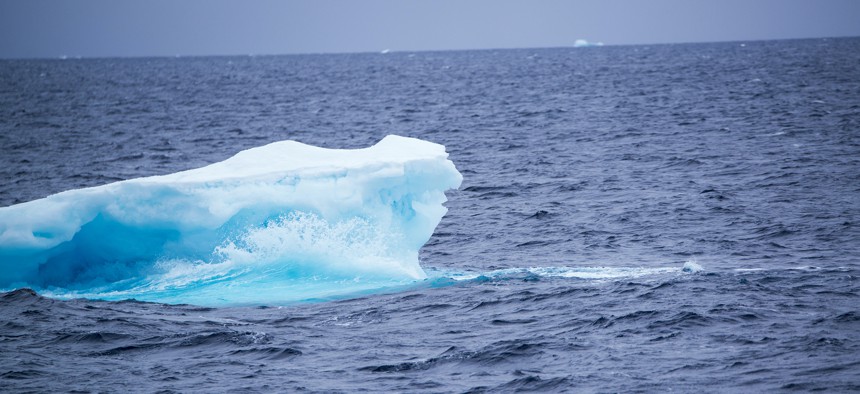
Waves crash against an ice floe Sept. 13, 2016, in the Chukchi Sea, part of the Arctic Ocean. U.S. Coast Guard / Petty Officer 2nd Class Christopher Yaw
Pentagon Will Add a Climate-Policy Czar
New post is intended to champion climate considerations inside and beyond the Department, Kahl says.
The Pentagon will reorganize its policy shop to elevate the mission of combating and responding to climate change, the department’s policy chief said Friday.
While the Defense Department has done a lot to prioritize climate change throughout the organization, including at the service secretary level, Colin Kahl, the defense undersecretary for policy, said that the organization he oversees is “one place where we haven't done enough frankly.”
“If we’re going to say that this is a national priority and it’s a priority for the department, then it needs to be a priority for my organization too. So we’re going to be making some organizational changes in the coming weeks and months to make sure we have an organization that champions these issues and that it is resourced to champion these issues, to make sure it gets integrated into all the various documents we oversee,” Kahl said at an event hosted by New America.
Asked if that means the department is going to create a new policy position focused on climate change and the Arctic, Kahl declined to give more details.
“We will have a senior person who deals with the whole range of these issues, and we’ll probably announce that in the next few weeks,” he said.
The Defense Department released a climate risk analysis this month that says the warming climate poses an “existential threat” to America’s security. Climate change affects many facets of the military including bases being at risk in increasingly dangerous storms, the national guard being stretched thin responding to more frequent natural disasters and overall global instability driven by a warming climate that could require more military response.
Despite these dire warnings about the wide-reading effects of climate change on national defense, the Pentagon is not sending any officials to the Conference of the Parties, an annual global climate change conference beginning on Sunday in Glasgow.
Asked about the lack of a presence at COP, Kahl said the military is skipping the conference because the gathering is not focused on the national-security implications of climate change.
“You can expect the Department of Defense to be there when the agenda suits the topics where our expertise I think can be most brought to bear,” Kahl said. “You can also expect that in our bilateral and multilateral defense engagements, that climate will be on the table in a way it hasn’t previously been before.”
Even with the increased focus on climate change, he said, the military is not losing sight of competition with China, which he said is the “pacing challenge” for the Pentagon.
“There is zero risk that the Department of Defense isn’t going to take China seriously,” he said. But “these issues are more intertwined than I think the skeptics or critics may think.”







